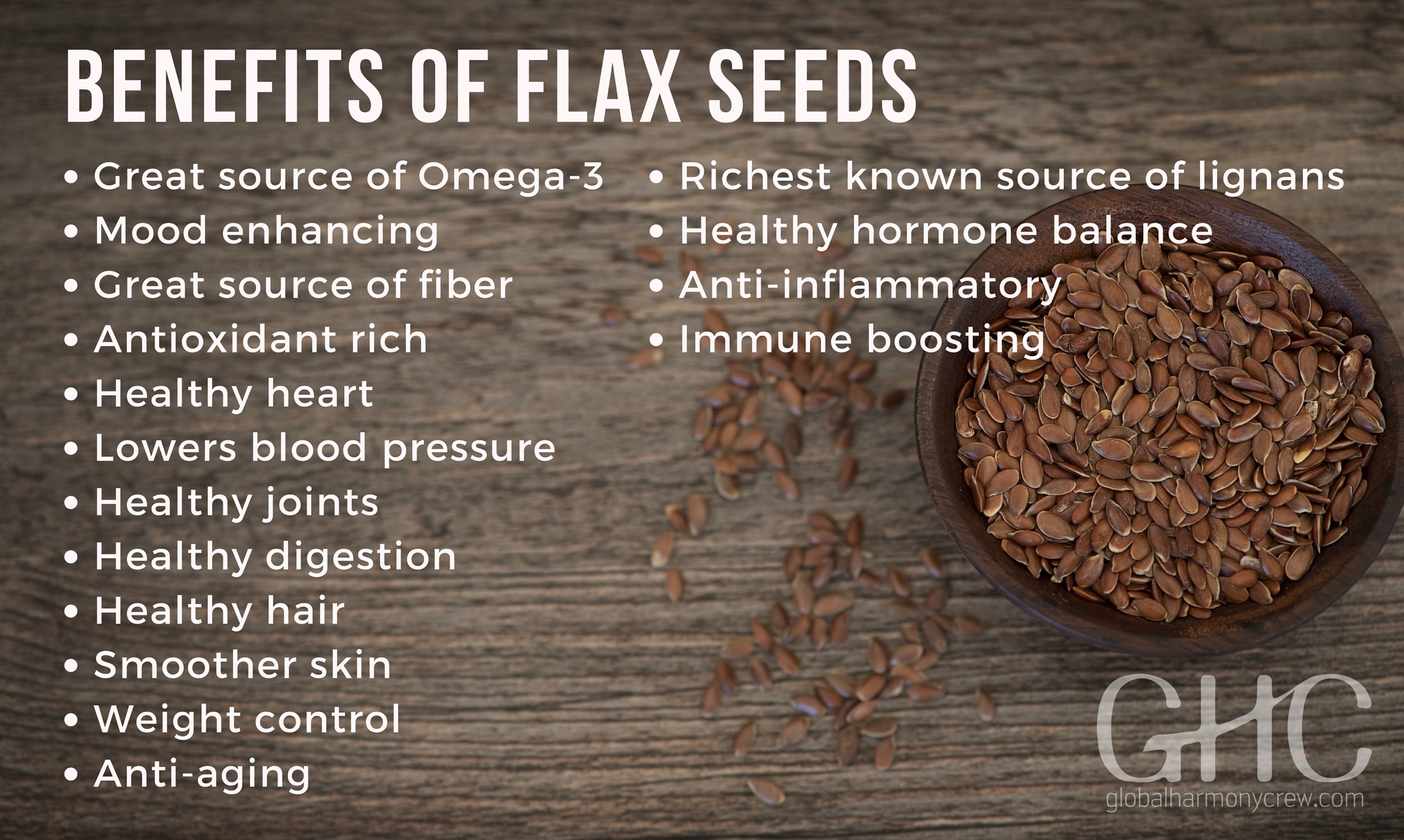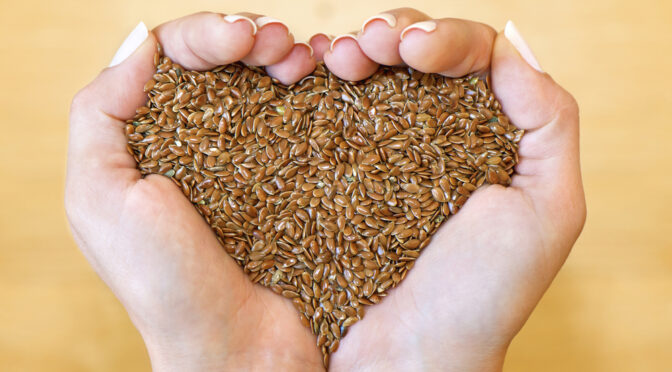Flax seeds are nutrition bombs with many health benefits. They are easy to incorporate into your diet.
Flax seeds are packed with Omega-3’s – healthy fatty acids with a plethora of health benefits. Omega-3’s boost your brain functions, your mood [1][2], your heart health, and your joint health. They give you smooth skin and glossy hair, lower blood pressure, and are anti-inflammatory and anti aging [2].
Flax seeds contain high levels of mucilage gum, which keeps food in your stomach longer and helps you absorb more nutrients. This improves digestion.
Flax seeds are rich in fiber, thus they help flush out toxins and clean your colon.
Flax seeds are the richest known source of lignans, a group of chemical compounds found in plant-based foods. Lignans are known to have anti-cancer [3] and anti-inflammatory properties [4], as well as the possible benefit of reducing the risk of heart disease and lowering cholesterol levels [5].

How to Use Flax Seeds Every Day
Flax seeds can be used in nearly anything you eat. Try these tips:
- Blend them into your smoothie
- Sprinkle on a salad
- Sprinkle onto pasta, wok, or stew
- Bake into crackers, cookies, muffins, or bread
- Use as a vegan egg substitute in baking
- Add to youghurt
- Add to oatmeal
About the author:
Vegard Paulsen is one of the two founders of Global Harmony Crew.
Subscribe to Global Harmony Crew to go deeper into self-realization and how to live a life worth living. When you subscribe you get their 20$ inner peace course for free.
Learn more about how to enhance your mood from their Udemy course on brain chemicals.
Resources:
[1] Tanna, Ila R. et al. 7 June 2016. “Protective Role of Ashwagandharishta and Flax Seed Oil against Maximal Electroshock Induced Seizures in Albino Rats.” Ayu 33.1 (2012): 114–118. PMC. Web.
[2] Bourre JM1. 2005 “Dietary omega-3 Fatty acids and psychiatry: mood, behaviour, stress, depression, dementia and aging.” J Nutr Health Aging. 2005;9(1):31-8.
[3] Lowcock EC1, Cotterchio M, Boucher BA. 2013 Jan 25.
“Consumption of flaxseed, a rich source of lignans, is associated with reduced breast cancer risk.” Cancer Causes Control. 2013 Apr;24(4):813-6. doi: 10.1007/s10552-013-0155-7.
[4] Kassuya CA1, Leite DF, de Melo LV, Rehder VL, Calixto JB. 2005 “Anti-inflammatory properties of extracts, fractions and lignans isolated from Phyllanthus amarus.” Planta Med. 2005 Aug;71(8):721-6.
[5] Julia Peterson, Johanna Dwyer, Herman Adlercreutz, Augustin Scalbert, Paul Jacques, and Marjorie L McCullough. 2010. “Dietary lignans: physiology and potential for cardiovascular disease risk reduction”
Nutr Rev. Author manuscript; available in PMC 2011 Oct 1.


Hello! i really liked your post. Please share some more